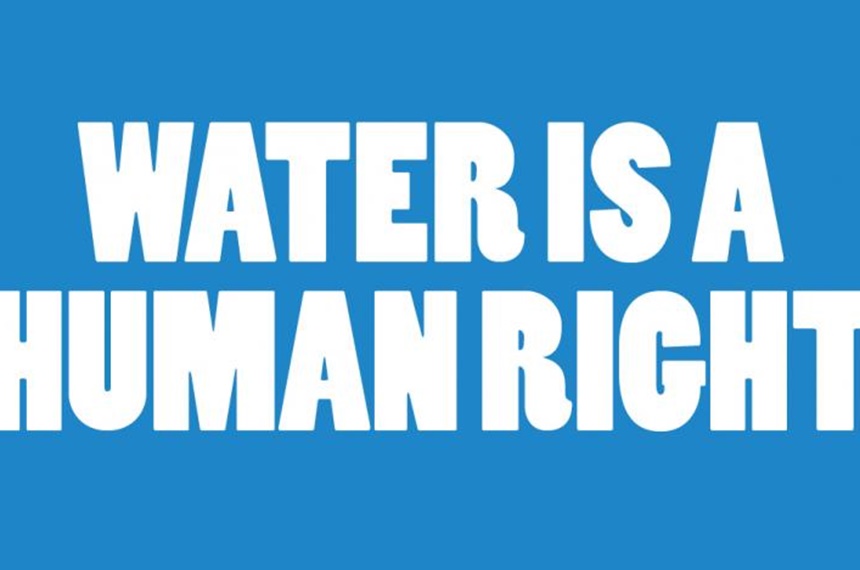
Slovenia adds water to constitution as fundamental right for all
In November 2016, Slovenian parliament adopted an amendment to constitution, making the right to drinking water a fundamental right. The text of constitution is as follows:
Article 70a (right to water):
- Everyone has the right to drinking water.
- Water resources are public property managed by the state.
- Water resources serve preferentially and sustainably to supply citizens with drinking water and water for the household use and are not a market-oriented commodity.
- Supply of drinking water and water supply of households is provided by the state through local communities directly and non-commercially.
Slovenian Prime Minister Miro Cerar commented the adoption: "Slovenian water is quality and will, because of its value in the future, certainly wake up appetites of foreign countries or multinationals. The more the water becomes a scarce commodity, more pressure will grow, but we must not give in. This shows a clear commitment of our government to keep Slovenia green and that we strive to maintain Slovenian water and water resources secure for the well-being of citizens and our successors".
Slovenia is the first European Union country to include the right to water in its constitution; although according to Rampedre (the online Permanent World Report on the Right to Water) 15 other countries across the world had already done so.
However, there are some concerns about the future price of water under the new system. Ministry of Health has prepared a regulation on drinking water, which will transfer the monitoring of drinking water, which has been implemented by the National Laboratory for health, environment and food, to operators of water supply systems. Ministry of Health says that the state monitoring is abolished because there has been duplication of samples with internal controls that are implemented by water supply systems operators. The National Laboratory believes their own results are more credible, since existing operators can implement their own testing in their laboratories without accreditation and verification of external services.
Critics estimate that instead of sampling now greater emphasis will be given to the compliance of documentation. Climatologist Lučka Kajfež Bogataj warns: "When you give monitoring to the one that to some extent also creates profit with water, then at least in principle we lose neutrality." She points out that users will have to pay the amount of money that the state will save because it will no longer carry out the monitoring of drinking water: "Almost certainly the services related to water will therefore become more expensive for the end users."
National Laboratory prepared a calculation in 2013. In case the monitoring of drinking water is transferred to the water system operators, the cost per capita would be small on an annual level, and could in smaller areas reach up to 10 euros.
Source:

Follow us on